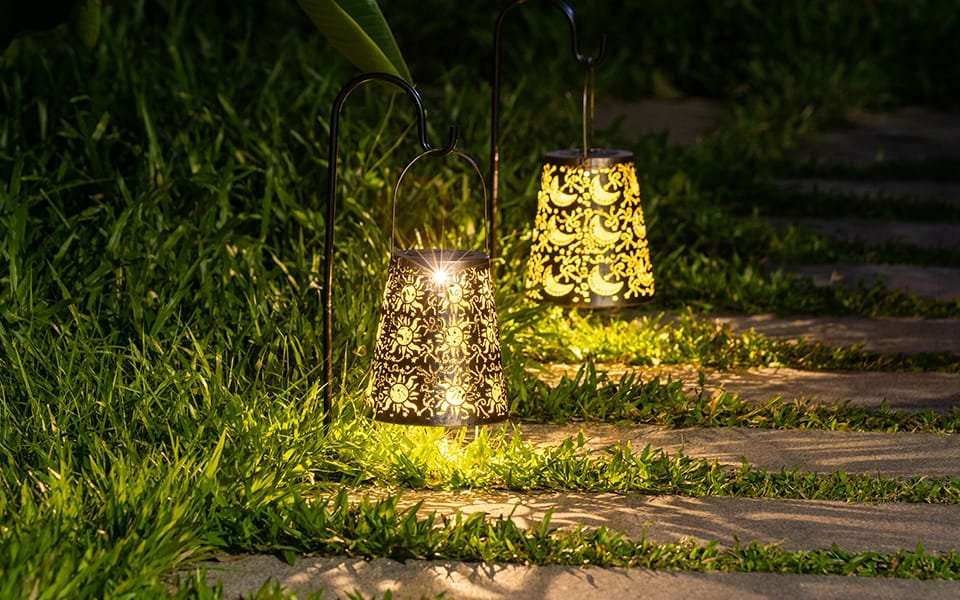Many people wonder if they can use regular AA batteries in solar lights, especially when their rechargeable batteries run out. While it may seem like a quick fix, this simple solution could cause long-term issues with your solar lighting system. Let’s explore why regular AA batteries aren’t ideal for solar lights and what you should use instead.

Regular AA batteries, especially alkaline ones, are not recommended for use in solar lights. These batteries are designed for one-time use and can cause corrosion in the solar light’s terminals. Furthermore, they lack the rechargeability needed for solar-powered systems, leading to shorter lifespans for both the batteries and your lights. For optimal performance, solar lights require rechargeable batteries designed for repeated charging and discharging.
Now that we understand why regular AA batteries aren’t the best option, let’s look into the types of batteries that are specifically designed for solar lights to ensure they run efficiently and last longer.
What Happens if You Put a Regular Battery in a Solar Light?
When you put a regular AA battery into a solar light, you may experience several problems. Regular batteries, such as alkaline batteries, are designed to be used once and disposed of, unlike rechargeable batteries meant to endure multiple charge cycles. This mismatch leads to issues such as:
- Corrosion: Regular batteries can cause corrosion at the terminals of the solar light. Since they aren’t designed for constant recharging, the battery’s materials can degrade and leak, harming the light’s components.
- Short lifespan: Unlike rechargeable batteries, normal AA batteries will deplete quickly in solar lights, causing the light to lose brightness or even stop working entirely.
Do Solar Lights Need Special AA Batteries?
Yes, solar lights typically require rechargeable AA batteries to function properly. However, not all solar lights are the same. Some require specialized batteries due to their voltage or energy requirements. For example:
- NiMH (Nickel-Metal Hydride) batteries are the most common choice for solar lights, providing a long-lasting power source that can be recharged many times.
- NiCd (Nickel-Cadmium) batteries were once popular, but they have been largely replaced by NiMH because of environmental concerns and better performance.
Before replacing your batteries, check the specifications of your solar light to determine which type works best.
Can I Use a Normal Battery for Solar?
While it might be tempting to use a regular AA battery as a temporary solution, it’s not the most effective choice for solar lights. Here’s why:
- Energy Inefficiency: Normal batteries don’t offer the same power capacity as rechargeable batteries. They can discharge too quickly, leaving your solar lights dim or non-functional.
- Damage Over Time: Even if you use them for a short time, regular AA batteries are more likely to cause damage to the light due to their lack of rechargeability.
For optimal performance, solar lights need rechargeable batteries that can store energy over long periods and provide consistent power.
Can You Use Regular AA Batteries Instead of Rechargeable?
Technically, you can use regular AA batteries in solar lights temporarily, but it’s not a solution for the long term. Regular alkaline batteries don’t recharge, so they’re essentially one-time-use, and this can cause several issues:
- Frequent Replacement: You’ll need to replace the batteries often, increasing your costs over time.
- Environmental Impact: Disposable batteries contribute to more waste, which is not ideal for eco-conscious consumers.
If you’re looking for eco-friendly options, consider replacing regular batteries with rechargeable AA batteries, like NiMH.
Can You Use Regular AA Batteries Instead of Rechargeable?
Technically, you can use regular AA batteries in solar lights temporarily, but it’s not a solution for the long term. Regular alkaline batteries don’t recharge, so they’re essentially one-time-use, and this can cause several issues:
- Frequent Replacement: You’ll need to replace the batteries often, increasing your costs over time.
- Environmental Impact: Disposable batteries contribute to more waste, which is not ideal for eco-conscious consumers.
If you’re looking for eco-friendly options, consider replacing regular batteries with rechargeable AA batteries, like NiMH.
What Kind of Batteries Do You Use for Outdoor Solar Lights?
For outdoor solar lights, you need batteries that are durable and capable of withstanding weather conditions. The best batteries for outdoor solar lights include:
- NiMH Rechargeable Batteries: Perfect for solar lights as they can handle temperature fluctuations and still perform well.
- High Capacity NiMH Batteries: Some solar lights require high-capacity batteries to ensure they stay bright all night. Look for AA or AAA options with 2500mAh or higher capacity.
Best Rechargeable Batteries for Solar Lights
The top choices for rechargeable batteries for solar lights include:
- Energizer Recharge AA NiMH Batteries: These are affordable, long-lasting, and widely available. They can withstand the constant charging cycles of solar lights and provide great performance.
- Duracell Rechargeable NiMH AA Batteries: Known for their longevity and ability to hold charge, Duracell is another trusted option for solar lights.
- AmazonBasics NiMH AA Batteries: For a budget-friendly option, AmazonBasics offers a good choice for solar lights that ensures a long lifespan and energy efficiency.
Can I Use Energizer Rechargeable Batteries for Solar Lights?
Yes! Energizer rechargeable batteries are a great choice for solar lights. They are designed for high-performance and can withstand the repeated charging and discharging cycles typical of solar-powered devices. Choose the NiMH rechargeable version to ensure optimal energy storage and durability in your solar lights.
Summary
In conclusion, while regular AA batteries might seem like a quick fix for your solar lights, they’re not the best long-term solution. Opting for rechargeable NiMH batteries ensures that your solar lights function efficiently, last longer, and remain eco-friendly. Make sure to check your solar light’s battery specifications and choose the best rechargeable option for optimal performance.
